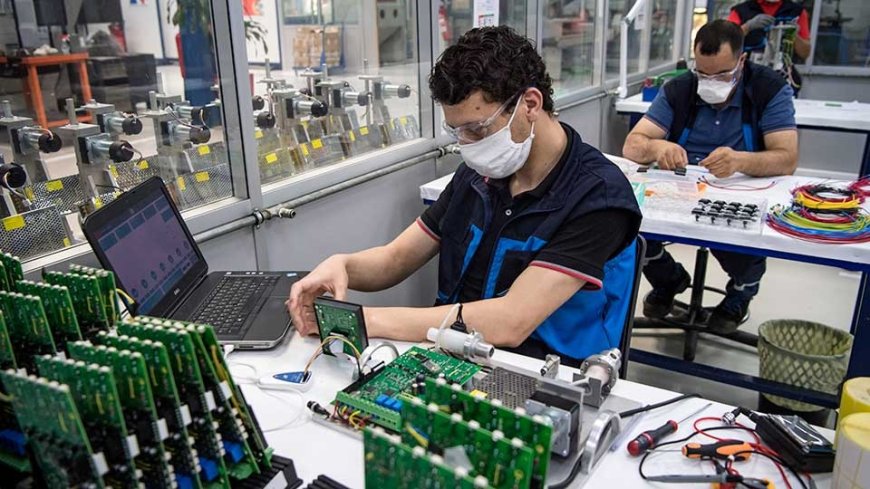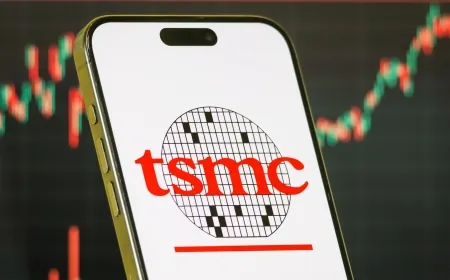China Imposes Export Controls on Gallium and Germanium, Escalating Chip War
China's chip war escalates as it imposes export controls on gallium and germanium. Implications for global chipmaking industry and potential countermeasures.

The trade war between China and the United States has intensified as Beijing retaliates against the US by imposing export controls on two crucial raw materials - gallium and germanium. These materials play a vital role in the global chipmaking industry, making China's latest move a significant countermeasure in response to potential tightening of the US ban on AI chips. The escalating chip war raises concerns about the possibility of further countermeasures in the near future.
Background:
The Biden administration introduced export controls in October, prohibiting Chinese companies from purchasing advanced chips and chip-making equipment without a license, citing national security reasons. The restrictions were aimed at safeguarding US interests in various sectors, including smartphones, self-driving cars, advanced computing, and weapons manufacturing. To effectively implement the controls, the participation of key suppliers from the Netherlands and Japan was crucial. China, in response, took retaliatory actions, such as launching a cybersecurity probe into Micron, a major US memory chipmaker, and banning the company from selling to Chinese firms involved in critical infrastructure projects.
The Significance of Gallium and Germanium:
Gallium is a soft, silvery metal widely used in semiconductors and light-emitting diodes. Germanium, a hard metalloid, is crucial in the production of optical fibers for transmitting light and electronic data. Although not classified as rare earths, these materials are expensive to mine or produce. They are typically obtained as byproducts of mining common metals like aluminum, zinc, and copper, processed in countries with appropriate facilities.
China's Dominance and Market Impact:
China is the world's leading producer of gallium and germanium, accounting for a staggering 98% of global gallium production and 68% of refined germanium production, as per the US Geological Survey. China's market dominance stems from its economies of scale, integrated mining and processing operations, and state subsidies, which allow it to export processed minerals at lower costs compared to other operators.
The announcement of export controls on gallium and germanium had an immediate effect on the market. Chinese producers of these raw materials experienced a significant surge in their stock prices. Additionally, Australian rare earths producers also saw an increase, as investors anticipated potential export curbs on rare earths, another group of strategically important minerals.
Impact on the Chip War:
The United States heavily relies on China for gallium and germanium, with more than 50% of these materials imported from China in 2021, according to the US Geological Survey. China's export controls on gallium and germanium are seen as a warning shot to the United States, Japan, the Netherlands, and other countries involved in high-end chip production. The objective is to deter these countries from imposing further restrictions on Chinese access to advanced chips and related technologies.
The Road Ahead:
Despite the potential impact of China's export controls, alternative producers and substitute materials provide some buffer for the United States and its allies. The US imports a considerable amount of gallium from the United Kingdom and Germany, while Belgium and Germany are significant suppliers of germanium. These alternative sources help mitigate the risks associated with China's controls.
Looking ahead, industry analysts speculate that if China's current actions fail to yield the desired results, rare earths could be the next target of export curbs. However, imposing such restrictions carries a double-edged sword, as past attempts by China to leverage its rare earth dominance resulted in reduced availability and increased prices. Higher prices incentivized mining and processing ventures outside of China, ultimately diminishing China's global market share.
Conclusion: China's implementation of export controls on gallium and germanium marks a significant escalation in the ongoing chip war. The implications of these measures are yet to fully unfold, and the response of the United States and other countries will shape the future dynamics of the conflict. As the battle for technological supremacy continues, the global chipmaking industry braces itself for further disruptions and uncertainties.
Also Read: Understanding the Growth Dynamics: A Comparative Analysis of the Indian and Chinese Economies
































































